Are you looking to make energy-efficiency improvements to your home?
Your energy audit and many efficiency upgrades qualify for tax credits under the new Inflation Reduction Act!
By now, you’ve probably heard about the Inflation Reduction Act signed into law by President Biden on August 16th. It’s the largest investment in alternative energy and energy efficiency by the US Government yet! A whopping $370 BILLION will be allotted to advancing the adoption of renewable energy systems and energy-saving improvements, among other things.
Whether you’ve made upgrades in 2022 to your Nashville home or are planning to take action in the next few years, here are the credits you may be able to take advantage of:
25C Tax Credit – Energy Efficiency Home Improvements (AKA: The Nonbusiness Energy Property Tax Credit)
What is it: 25C offers homeowners a tax credit for energy audits and efficiency upgrades, including:
- Energy audits ($150 credit)
- Insulation and air sealing
- Heat pumps and heat pump water heaters ($2000 credit)
- Energy-efficient HVAC systems (furnaces, boilers, and central AC systems)
- Energy-efficient windows and doors ($500 credit for doors)
- Electric panel upgrades
What to know:
- Tax credits for residential energy efficiency were extended retroactively through December 31, 2022 at the original rate of 10% of the cost of qualified energy efficiency improvements.
- Starting in 2023, the credit increases to 30% until the year 2032.
- A $600 cap applies to each measure, with an annual cap of $1200 per year; exceptions apply to heat pumps and doors (see list above).
- These credits apply to your principal residence during the taxable year.
High-Efficiency Electric Home Rebate Program
What is it: This program provides funding to state energy offices to develop a consumer rebate that allows low- and moderate-income households to electrify their home. The rebate offers up to $14,000 and includes:
- Heat pump water heaters ($1,750)
- Heat pump HVAC systems: ($8,000)
- Electric stoves ($840)
- Heat pump clothes dryers ($840)
- Electrical panel upgrades ($4,000)
- Insulation, air sealing, and ventilation ($1,600)
- Electric wiring upgrades ($2,500)
What to know:
- These rebates cannot be combined with other federal grants or rebate programs.
- Rebates will be issued through each state’s energy office.
- Check with your tax specialist to determine qualifying income levels.
Federal Solar Tax Credit
What is it: This credit provides a tax credit for residential (and commercial) solar and battery storage installations. You may already be familiar with the solar tax credit, but some things have changed:
- The 2022 tax credit for residential solar has gone back up to 30% of the installed cost for all systems installed in 2022.
- The tax credit remains 30% until 2032 and then steps down in 2033 and be eliminated in 2035.
- Stand-alone battery storage systems will qualify starting in 2023.
What to know:
- The tax credit applies to the total installed cost.
30D Clean Vehicle Credit
What is it: 30D provides a tax credit for new and used electric vehicles.
- $7500 for new electric vehicles
- $4000 for used electric vehicles, or 30% of the sale price, whichever is lower.
What to know:
- Only vehicles that completed assembly in the U.S. qualify for the credit. For more information on qualifying vehicles, visit the DOE Alternative Fuels Data Center Website.
- The credit for used electric vehicles applies to those under $25,000, are being sold as a ‘used vehicle’ for the first time, and are at least two years old.
- Tax credits apply only to qualifying income levels.
- E3 can install an EV charging station at your home!
Why does energy efficiency matter?
The residential sector is the third largest consumer of energy in the U.S., and of that energy 65% is used while the remaining 35% is wasted. So, improving the energy efficiency of homes across America has the potential to save a tremendous amount of energy, which translates into a tremendous reduction in CO2 emissions and other harmful air pollutants.
Heating and cooling accounts for upwards of 50% of the energy consumed in homes, while water heating comes in at #2, accounting for about 15% of the total. So, these components also has the greatest potential for savings!
When it comes to saving energy on heating and cooling, improving your home’s insulation and air sealing is key. Then, when it’s time to replace your HVAC system, make sure you’re getting the right size! Often, when insulation improvements are made, the HVAC system can be down-sized, which leads to even greater energy (and cost) savings!
Wondering where to start and how you can make a difference in the fight against climate change?
Sign up for our LIVE Q&A webinar, Friday November 18th at 12:00 PM Central. Registration is now open! We will go over the basic of the credits and incentives and then open up the discussion and take questions from you!
When: Friday November 18th
Time: 12:00 – 1:00 PM Central
Where: Microsoft TEAMS (register for access code)
REGISTER ON EVENTBRITE HERE
The best way to get started is with E3’s whole-home energy audit. This service provides an assessment of how well your house works currently and where improvements can be made to help you save energy – and in the meantime improve comfort, air quality, and support the transition to a low-carbon future. Lucky for you, your E3 Energy Audit now qualifies for a $150 tax credit!









